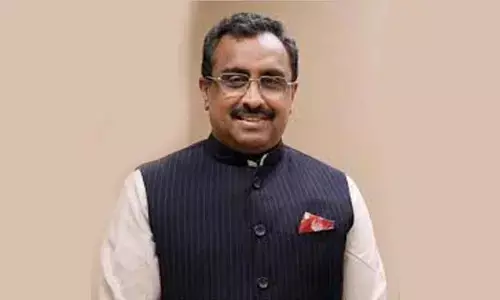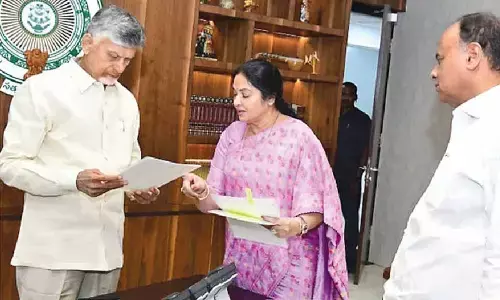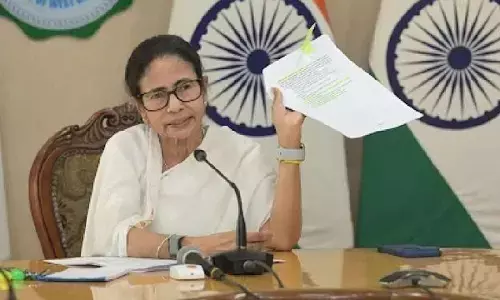Covid 3rd wave: Centre releases myths & facts to dispel rumours

Centre releases myths & facts to dispel rumours
With many health experts warning that the possible third wave could severely affect children, the Union Ministry of Health and Family Welfare on Wednesday tried to dispel rumours regarding the higher vulnerability of children to get adversely impacted by coronavirus during the subsequent waves, if any.
New Delhi: With many health experts warning that the possible third wave could severely affect children, the Union Ministry of Health and Family Welfare on Wednesday tried to dispel rumours regarding the higher vulnerability of children to get adversely impacted by coronavirus during the subsequent waves, if any.
The ministry quoted AIIMS Director Dr Randeep Guleria saying that the healthy children who contacted Covid and recovered with mild illness without need for hospitalisation were safer as compared to those who either had comorbidities or low immunity.
The government also tried to assure the people by quoting Dr VK Paul, Member, NITI Aayog, who has said that COVID-19 in children is often asymptomatic and seldom requires hospitalisation.
Keeping in mind the preparedness that is required to keep the children safe and healthy during subsequent COVID-19 waves, the Union Ministry of Health and Family Welfare has issued guidelines for 'Management of COVID-19 in children (below 18 years).
The guidelines can be accessed by clicking this link
The Health Ministry and various experts have regularly emphasised the need for Covid Appropriate Behaviour (CAB) for children as well as adults to break the chain of transmission of the virus, the government said in its release.
A seroprevalence study conducted by the World Health Organisation (WHO) and the All India Institute of Medical Sciences has said that a third possible wave of Covid in India by the prevailing virus variant is unlikely to disproportionately affect children than adults.
The survey, which was conducted in five selected states with a total sample size of 10,000, found that the SARS-CoV-2 sero-positivity rate among children was high and was comparable to the adult population. "There was no statistically significant difference in prevalence between adults and children," the AIIMS-WHO study said.
The Directorate General of Health Services (DGHS) under the union health ministry has said that children aged 5 years and under should not be required to wear masks.
As per the DGHS' guidelines, children aged 12 years and over should wear a mask under the same conditions as adults, while children aged 6-11 years may wear a mask depending on the ability of a child to use a mask safely and appropriately under the direct supervision of parents/guardians.











